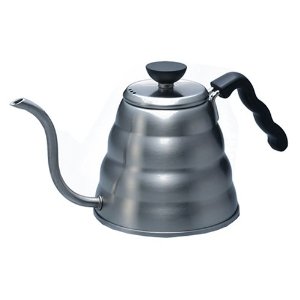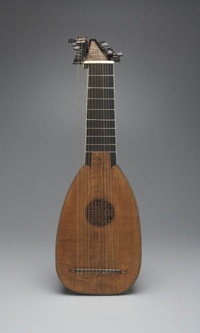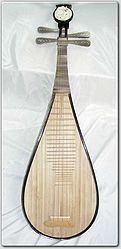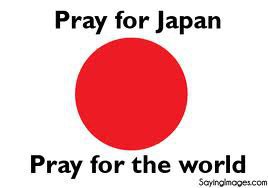LETTERS FROM THE GLOBAL PROVINCE
Bueno: Putting Craft into Life, Global Province Letter, 16 March 2011
The Hour That Nearly Got Away. Every year we gain an hour, then lose an hour. That is, in the Fall, with the darkening of the evening, we put ourselves on standard time, setting the clocks back an hour, gaining an hour’s sleep on Sunday morning. But now, pretending that Spring is already here, whan that Aprille with his shoures soote, we rush things a bit, act like light has come and cold has gone, speed up the clocks for Daylight Savings Time, and catch some morning worms, because we are up an hour earlier.
 Feeling robbed of this hour, we recently recaptured lost time with Proustian gusto by taking up stately pursuits. In our last letter to you, we spoke of a “perfect cup of coffee.” Thus enthused, we took some Kenyan beans down from the pantry shelf, and set about hand grinding them, with our instrument from Hario. Despite all the tall tales coffee aficionados spew about the dexterity with which they turn beans into grounds, we find this to be a demanding process which easily consumes one-half hour, what with interruptions for the dog, for reading aQuaddafi headline in the Times, for an idle moment to gaze at the white roses opening in the morning light. As we freeze the present with our deliberate pace, a lute lingers in the background, the sounds of Thysius and the 1600s blotting out the drumbeats of the day. Banishing electric grinders and invoking the ancients makes Sunday seem like a day of rest.
Feeling robbed of this hour, we recently recaptured lost time with Proustian gusto by taking up stately pursuits. In our last letter to you, we spoke of a “perfect cup of coffee.” Thus enthused, we took some Kenyan beans down from the pantry shelf, and set about hand grinding them, with our instrument from Hario. Despite all the tall tales coffee aficionados spew about the dexterity with which they turn beans into grounds, we find this to be a demanding process which easily consumes one-half hour, what with interruptions for the dog, for reading aQuaddafi headline in the Times, for an idle moment to gaze at the white roses opening in the morning light. As we freeze the present with our deliberate pace, a lute lingers in the background, the sounds of Thysius and the 1600s blotting out the drumbeats of the day. Banishing electric grinders and invoking the ancients makes Sunday seem like a day of rest.
Then comes the pleasure of heating the pot and the cloth filter with water steamed up in the beautiful Buono V60 drip kettle. Only then are we ready to spoon the powdery grounds into the filter and to carefully graze all the coffee with water from the kettle’s spout. Seemingly, another half hour passes before enough drops have collected in the glass cavity below. For sure the coffee is strong and uniform but not sharp, such that those who usually require milk and sweet with their Columbian do without any additives—the coffee is so delicious just as it is. The brewing, in our case, was wedded with the pipa in Tan Dun's Ghost Opera. Listening to older Chinese instruments, one feels as if engaged in a ritual that dates back several dynasties. Again, the music makes the coffee making and drinking more sublime.
 The Lute and the Pipa Are Somehow Related Maybe. The standard wisdom is that the lute and the pipa both spring from the oud of the Middle East. More than one scholar would have some doubts about this hypothesis. Nonetheless, there appears to be some sort of kinship between lute-like instruments. Listening to the peculiarities of each probably gives us some insights as to the differences defining the world’s civilizations.
The Lute and the Pipa Are Somehow Related Maybe. The standard wisdom is that the lute and the pipa both spring from the oud of the Middle East. More than one scholar would have some doubts about this hypothesis. Nonetheless, there appears to be some sort of kinship between lute-like instruments. Listening to the peculiarities of each probably gives us some insights as to the differences defining the world’s civilizations.
We like it as well that the eras when such instruments were at their zenith preceded the prima donna age when suddenly all eyes were to be glued on the musician up on stage, and we the audience were cowed into submissive silence. Music, at its best, is just one ingredient in our environment, meant, we think, to work in harmony with conversation, and chores, and subplots all about us. The nineteenth century and the Chopins put the performer on a pedestal. Music, like all craftsmanship, gains from and adds to the environment of which it is only a part. Music, deliberate coffee making, stately activities—these are all devices for making our moments very much more complete.
all about us. The nineteenth century and the Chopins put the performer on a pedestal. Music, like all craftsmanship, gains from and adds to the environment of which it is only a part. Music, deliberate coffee making, stately activities—these are all devices for making our moments very much more complete.
The Arts and the Lute. Perhaps there was a time when each of the arts was better related to the other, and all the arts in turn better connected to everyday life. Where art and life were a continuum. We need only think of the number of wonderful painters who celebrated the lute in their works. There is Titian’s Venus and the Lute Player. Or Vermeer’s somewhat haunting Woman with a Lute. Caravaggio more simply speaks to the beauty of a musician and his instrument in The Lute Player. In this kind of world the arts are not each put in separate compartments, and art itself in all of its manifestations is very much about life as it is lived.
It behooves us to recapture some aspects of life as it was before the age of mass production and mass marketing and high specialization. Our economy going forward in the coming century of boutiquism will depend on a fuller experience where our products and services are made with much greater care and individuality and in which each of them is transformed into an experience. Products and services will be surrounded by ambience.
The Music of Facebook. There’s another reason for having music in your midst that ranges beyond the quest for a compleat cup of coffee. That is, it is the most international language there is. Should you be a user of Facebook, you will find music is what most draws users together from around the globe. The groups that exchange music are by far the most international: you are liable to be communicating with a Bulgarian one moment, and an Argentinian the next. Music gets around and goes around. Each is busy sending on to all the others music videos.
Since the sixties, too, music has been the powerful idiom of change. It is most associated with new-found freedom. Music flourished during the rumblings in Berkeley and San Francisco. “Winds of Change” celebrated the opening up of Eastern Europe, is Germany’s most popular single record ever, and rocketed around the world in 1991. Hugh Masekela’s Bring Him Back Home to Soweto became a catalyst for Nelson’s Mandela’s release from prison and the peaceful revolution in South Africa. Of necessity, then, music must be part of the leading edge of commerce.
 Tears for Japan. As we brew our coffee the Japanese way, we are mindful that earthquake and tsunami and nuclear plants have made a shambles of the Land of the Rising Sun. Its embrace of technology has been a very mixed blessing, affording that country great material growth, but equipping it as well with a Trojan Nuclear Horse and an economy that has been sputtering since the 90’s. Yet if the nation has deified technology, it has also sainted individuals in the performing arts and crafts, whom it terms Living National Treasures. Perhaps these treasures will play a vital part in reviving the nation.
Tears for Japan. As we brew our coffee the Japanese way, we are mindful that earthquake and tsunami and nuclear plants have made a shambles of the Land of the Rising Sun. Its embrace of technology has been a very mixed blessing, affording that country great material growth, but equipping it as well with a Trojan Nuclear Horse and an economy that has been sputtering since the 90’s. Yet if the nation has deified technology, it has also sainted individuals in the performing arts and crafts, whom it terms Living National Treasures. Perhaps these treasures will play a vital part in reviving the nation.
A craftsmanlike approach to life would seem to be the way forward for the developed nations of East and West, many of which are taxed by malaise and anxiety. But, of course, craft takes time.
P.S. We always have heard much about tea ceremonies. But there are coffee ceremonies as well.
P.P.S. A friend tells us his favorite man of the lute is Eugen Dombois, “a superb lutist who for many years taught at the Schola Cantorum Baseliensis in Switzerland.” Wu Man is renowned for her mastery of the pipa and also has taken on the chore of reviving ancient Chinese music.
P.P.P.S. In the view of Robert Brumbaugh, a philosopher who understood Greek philosophy better than most, there are 4 ways of looking at time. “Brumbaugh also calls for the reexamination of our commonsense notions of time. He lists four distinct analyses of time in Western philosophy: "(I) time as a space-like extended dimension, or as an actual series; (2) time as recurrent periodic motion; (3) time as progressive maturity or age; and (4) time as a distention of the soul, awareness of the sequences of states and events that make up our subjective experience" (WPP 65). According to a process view of reality, existence in time is dynamic, directed, irreversible, and takes place in successive "phases of concrescence."” The very brief implication of all this is that he is a foolish man who lives by the clock. Human, existential time puts color in our life.
P.P.P.P.S. We are only slowly understanding what the attributes of products of the future will be, ranging well beyond those adumbrated in this letter. There’s sustainability. And a durability that overcomes that outmoded concept—obsolescence. And so on.
Home - About This Site - Contact Us
Copyright 2011 GlobalProvince.com